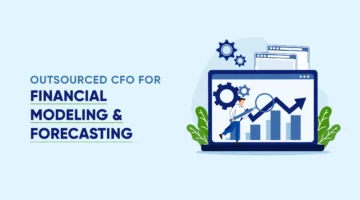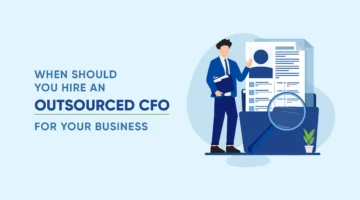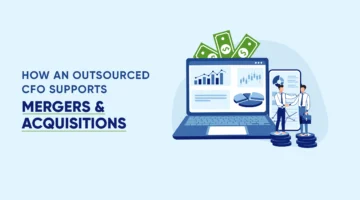How You Track Business Expenses Can Make or Break Your Business
We know that most people did not get into business because of their love of balance sheets and budgeting, but it’s also true that many businesses ultimately fail due to an inability to control the business expenses. In fact, anytime a business fails to be profitable for an extended period of time, it must close its doors.
As you have heard before, it is smart to hire an Accountant, Bookkeeper, Controller or CFO on a contract or fractional basis if you don’t have the expertise in-house. Our business model is built on this simple idea. However, it’s also true that entrepreneurs must pay attention to and understand their business’s budgeting and cash flow to succeed. General corporate accounting divides business expenses into two kinds of expenses, fixed and variable.
What are Fixed Costs?
Fixed costs are easier to budget for but could be eating into your profits. These include office or commercial space, insurance, utilities and employee compensation. The amount you should spend on these fixed costs varies by business model, but make sure your fixed costs leave you with a healthy budget for the expenses you can’t predict.
What are Variable Costs?
Variable costs include things such as employee travel and entertainment, building maintenance, and inventory. We recommend keeping careful records of both kinds of expenses and, when you have enough data, analyzing trends with the help of a financial professional.
Effective Cost Cutting
Outsourced Accountants can make more strategic cost cuts than an in-house team.
- They will have extensive experience with a wide range of companies in many different industries, thus giving them a deep understanding of what is the right things to cut and to compare your costs.
- They are more objective. Where managers or teams may have more of an interest in particular projects or initiatives that may influence their cost-cutting strategy, outsourced CFOs have no biases and make decisions based on the numbers and their vast experience.
- They bring an outside perspective. Cost-cutting is not a simple, one-size fits all process. Just because something is costing the company a lot of money, does not necessarily mean that it needs to be cut. To achieve cost cutting that is viable, and that drives company goals, there must be consideration, data analysis, and objectivity.
As a rule of thumb, there are a few questions you can ask yourself as you analyze these financial factors:
- Where are you spending the most and least, and does that match your expectations?
- How have your costs changed over time?
- Are your expenses working toward strategic goals?
- Are you charging enough for your services?
- Are you buying unnecessary or unprofitable inventory?
- Is your employee expense account system working well?
- How else can you control and plan for variable costs?
Tips For Business Expenses Tracking
- Make sure you know what counts as a business expense
It is important to be aware of what counts as a business expense and what does not. Business expenses may be tax deductible, so it is beneficial to know what will be considered one. - Record any transaction immediately
No matter what kind of transaction it may be, online, a check, you name it- be sure to record the transition as soon as possible to ensure that it does not get forgotten or lost. - Always save receipts
Save receipts in a designated area so that you always have them to reference. This will be helpful if a question or a problem arises. - Use accounting software
Accounting software will ensure that your finances are constantly in order, accurate and timely. A spreadsheet is only going to take you so far and will start to become a hassle and a stressor on your team when the business begins to grow. - Hire an outsourced bookkeeper
If you are not sure how to implement and run accounting software, an outsourced bookkeeper will come in handy. Not to mention the time they can take off your hands, as well as using their accounting expertise so that you can rely on your finances.
How NOW CFO Can Help
NOW CFO recommends tracking every cent on a daily basis and creating an in-depth analysis on at least a quarterly basis. If you are new to the business world, just opened a start-up, or any other reason you may not feel secure with your finances, our veteran financial consultants can provide ideas and guidance about how often to look at your costs and the best ways to control them for long-term profitability.
Get Your Free Consultation
Gain Financial Visibility Into Your Business
We provide outsourced, fractional, and temporary CFO, Controller, and operational Accounting services that suit the needs of your business.
- Hourly Rates
- No Hidden Fees
- No Long Term Requirements
NOW CFO provides the highest level of expertise in finance and operational accounting to accelerate results and achieve strategic objectives for sustainable growth and success.
After completing the form, a NOW CFO Account Executive will reach out and learn more about your needs so that we can pair you with the right Partner.



